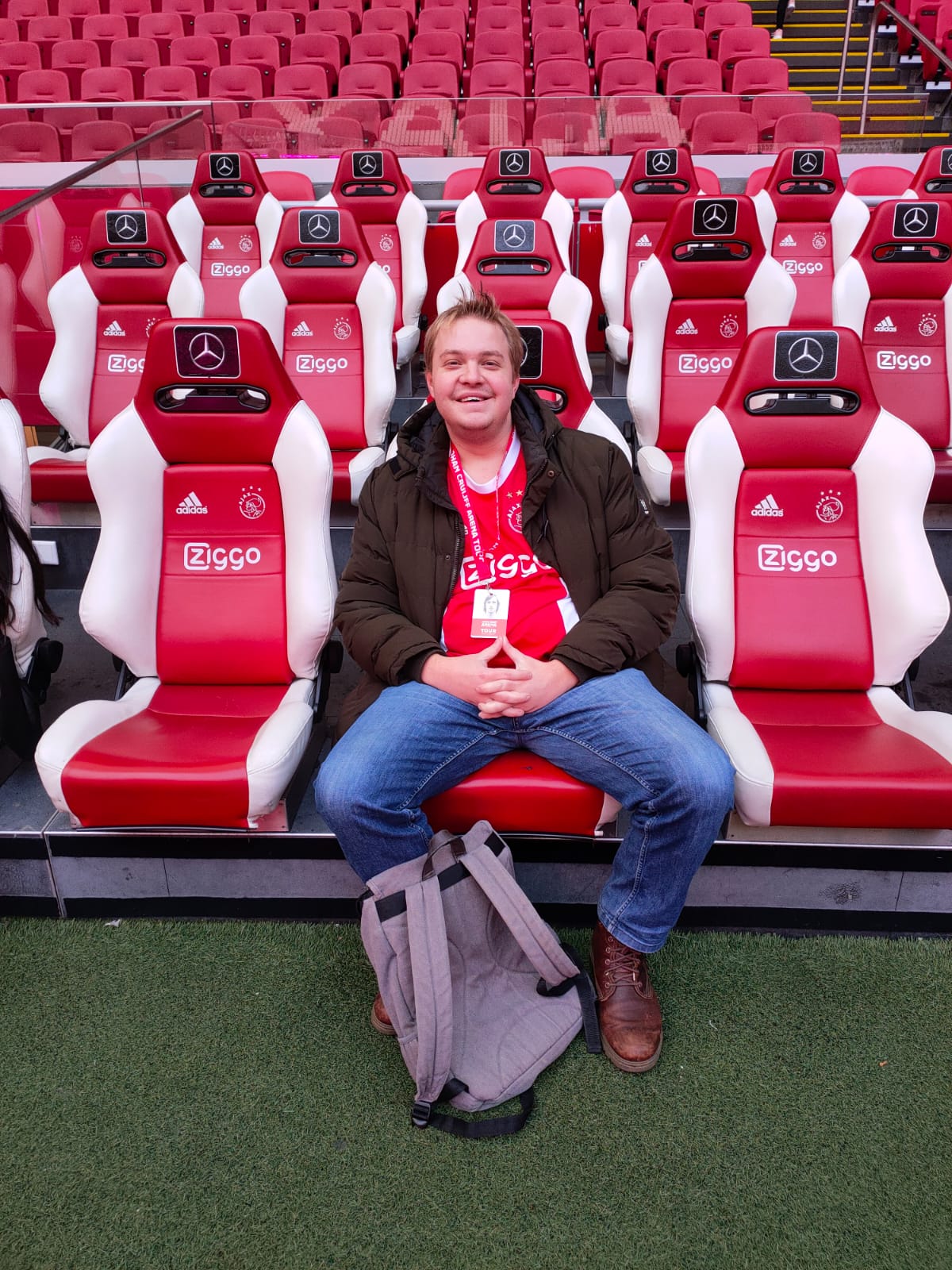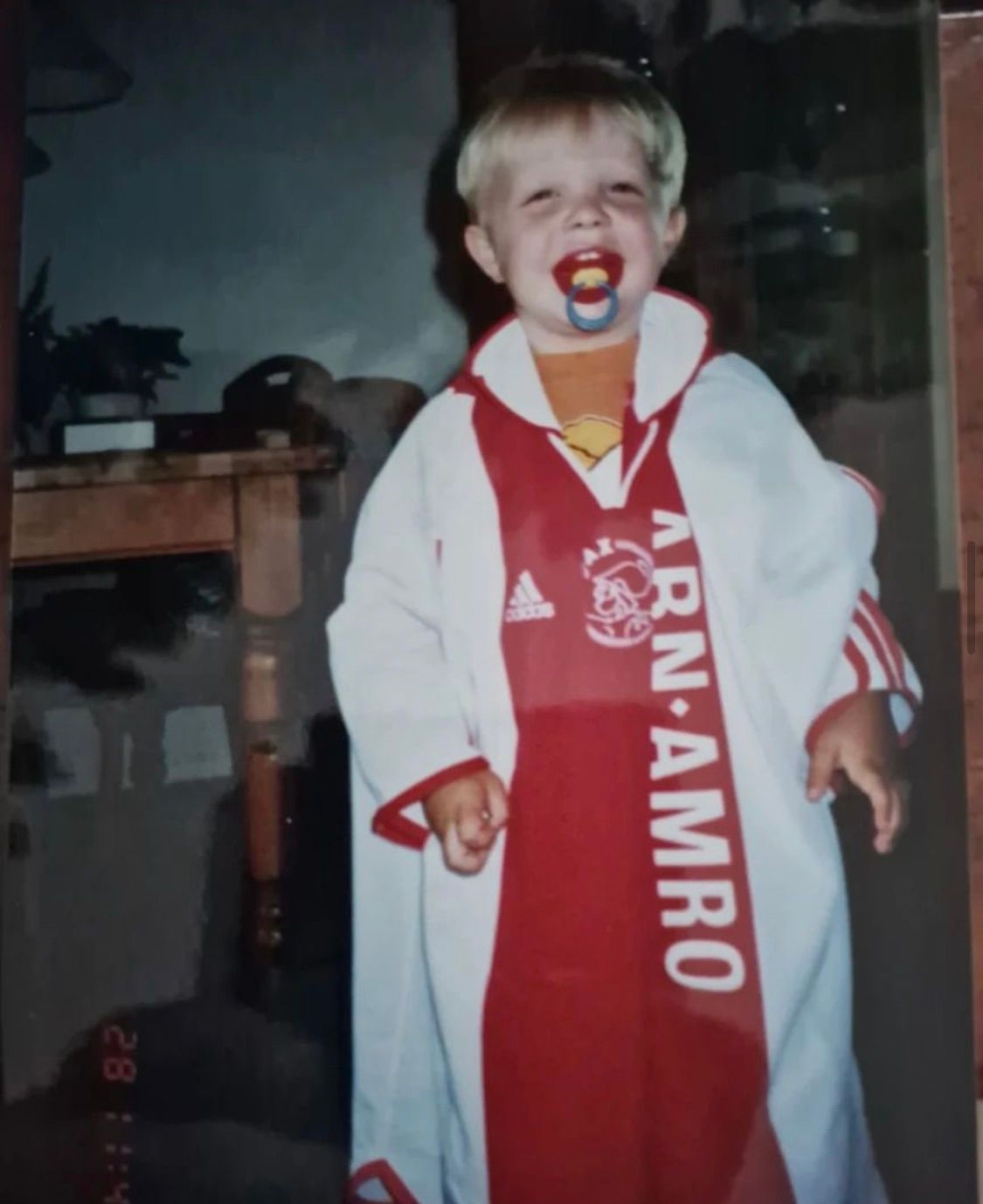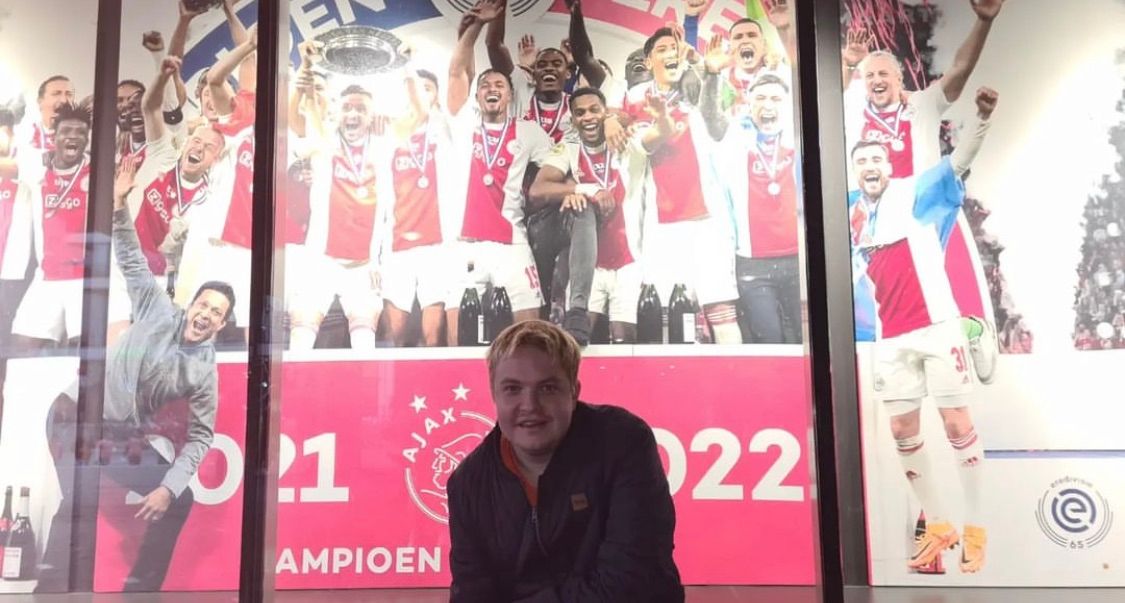Robin opens up on extreme Ajax fandom: "I despise big games, the nervousness makes me tremble"

In the world of football, there exists a community of fans whose love for the sport knows no bounds. Forza Football aims to give these fans a voice through a series of interviews. Our journey begins in the Netherlands, where we meet Robin (25), an avid Ajax fan.
Robin begins by explaining his lifelong support for Ajax: "I've been following Ajax since I was very young. My father and uncle are also Ajax supporters." He says he supports two other clubs outside the Netherlands as well: FC Barcelona and Manchester United. "Ajax is my true football love, while Barça and United are like close friends. I feel a stronger connection to Ajax, although I'm also very passionate about the other two."
Robin recalls his first game in 2003, a memorable cup match against NAC. "Since then, I've stuck with it", he says. It wasn't until 2007, however, that he became truly passionate about Ajax. "Nowadays, I'm constantly online, searching for news. Even at work, I always have my phone next to me. If there's a push notification about Ajax, I feel the urge to know about it immediately", he explains.

This season was a disappointing one for Ajax. They finished third in the Dutch Eredivisie and won't be participating in the Champions League next year. It was a season to forget for Ajax. Strangely, Robin sees it as somewhat of a relief. "At some point, you just accept it. In the past, I would be down for days after a poor result. I even had stomach aches going to school because I feared the reactions from fans of other clubs like PSV and FC Twente. They would sometimes rub it in. But now, after such a bad season, you kind of give up and accept it."
Ajax has played a significant role in Robin's life and has been a source of support for his mental well-being. "When I'm not feeling well mentally, I always have Ajax to hold onto. However, when things aren't going well for the team, it can hit me twice as hard. In the past, I couldn't put things into perspective. If Ajax lost, I might have stayed in my room the whole night, alone and sometimes crying in bed. Taking a walk helped me; it allowed me to release my emotions. Thankfully, I've overcome those extreme reactions. Therapy for other issues taught me to put football into perspective. Now I realise that while football is enjoyable, it should be a secondary thing in life. In the past, I used to prioritise it too much, and that was very dangerous", Robin reflects.

Despite learning to put things into perspective, Ajax can still have a significant impact on Robin. "Sometimes I'm too nervous to watch the game. When that happens, I follow the game on Twitter. I particularly dislike big games; I prefer to avoid them, and I despise them. But sometimes I still turn on the television because I’m constantly thinking about it. If I see the opposing team generating a chance, like a corner kick, I quickly turn the TV off. A few seconds later, if I see through Twitter that there hasn't been a goal, I turn it back on. I can't attend big games in person because the nervousness makes me tremble", he admits.

When Ajax lose a game, Robin used to suffer for several days. "I didn't want to go outside. I preferred to be alone in my room. Nowadays, I still feel the impact, but only for a couple of hours. I'll never forget the time when Ajax lost 6-4 against FC Utrecht. I was so extremely upset that I prefer to avoid thinking about it. I didn't want to go to school; it was crazy. I just hate seeing 'my love' Ajax suffer. That's how it feels as a fan. Sometimes, I would get headaches, and I would have trouble sleeping at night due to the pressure that was suddenly released. Before going to sleep, I would replay the game in my head multiple times. I also can't eat during games; it's like there's a 'switch' in my stomach one hour before a game. After the game, the switch opens again. I'm just too nervous during the match", Robin confesses.

Robin prefers watching football alone because of his nervousness. "I can't watch it with others, partly due to my anxiety. I hardly ever watch games with my father. We talk before and after the game, but when he asks me to watch together, I say: 'Sorry, this isn't the right time'. When I still lived with my parents, I would watch upstairs while my father watched downstairs. If Ajax were winning, I would join him downstairs at half time."
Over the years, Robin has noticed the growth of the football community on social media, but he believes it hasn't always been for the better. "I use the mute words feature on social media. I have a whole list, including the words 'PSV' and 'Feyenoord'. I simply don't want to see it. Reading positive things about rival teams can make me feel insecure. I think social media can worsen the emotions of football fans. The opinions and toxic behaviour from fans can make me feel like everyone is against me just because I support Ajax. Sometimes, I wish I were a fan of a less popular team to avoid the attention."

Apart from social media, Robin mentions that podcasts have become an emerging trend. "I listen to a lot of Ajax podcasts. This season, I even listen to them after a bad result. In the past, that was unimaginable. Now, it helps me deal with it. I don't usually watch post-match analysis after a loss. Sometimes I avoid them when rival teams have performed well. It's not pleasant to be constantly confronted with them being successful. It's tough to hear all the praise about Feyenoord, for example. But when rival teams do poorly, I sometimes enjoy listening to podcasts about them. I find joy in the chaos over there", he explains.

To cope with the emotional aftermath of a tough loss, Robin engages in activities like gaming, solving puzzles, taking walks, or talking with his father, who offers him "different perspectives". However, there's one method Robin applies before games: "I mentally prepare for a loss even before the game starts, so the impact isn't as hard. I try to see things negatively, so they can only be better than expected. If I were to say: 'Manchester United will easily secure a top-four finish, and we'll play Champions League football next season', and then they mess up... The disappointment would be much bigger."
In Robin's view, the football community is far off from a healthy place to be in, especially after a tough result. "Rivalry is a natural part of football, but hate is unnecessary. It's something I find horrible. Why hate someone because of their favourite club? We should all just enjoy the sport rather than fostering the hate", he concludes.
